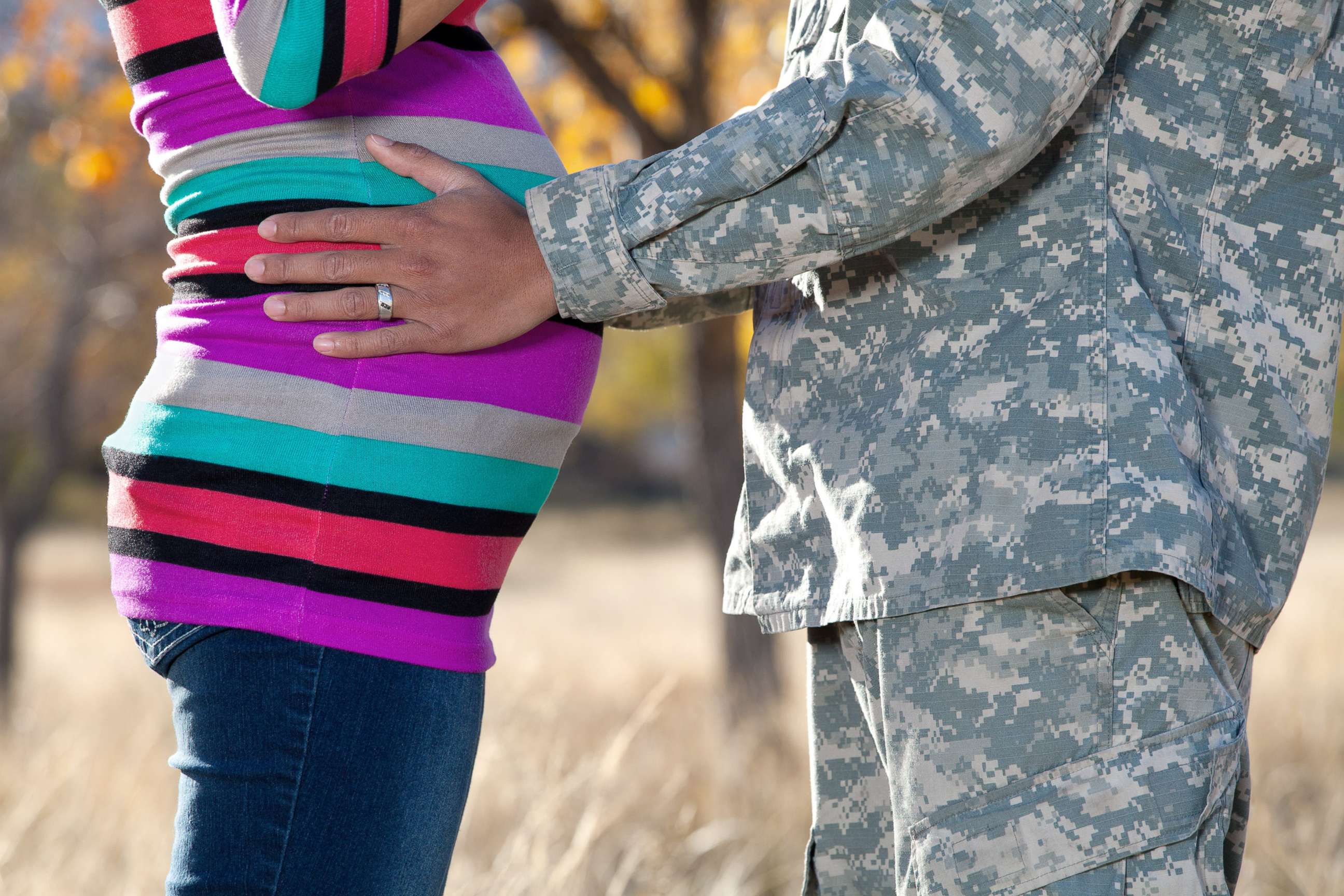Army revises policies on pregnancy, parental leave for soldiers
These changes stemmed from a grassroots movement within the Army.
The United States Army has announced new policies to expand soldiers' and their family's health.
The 12-part directive expands previous policies such as allowing paid medical leave for pregnancies and pregnancy losses for soldiers and/or their spouses. It also creates new policies such as ones addressing soldiers and spouses going through fertilization treatment.
Army Secretary Christine Wormuth signed the Army's Parenthood, Pregnancy and Postpartum directive 2022-06 on Thursday.
"It's recognizing that in 2022, we have all different kinds of families going through all different kinds of life issues, and we can really take care of our families so we can retain our soldiers," Maj. Sam Winkler said during a roundtable at the Pentagon on Thursday.

These changes stemmed from a grassroots movement within the Army and a Facebook group called The Army Mom Life, which has 8.2 thousand members.
One of those members is Staff Sgt. Nicole Pierce. Pierce worked with a committee at the Army headquarters to review the branch's policies on pregnancy, parenthood and postpartum.
Pierce pushed for the Army to acknowledge the need for soldiers to have medical leave for parents who may have a miscarriage or a stillbirth.
Pierce had her first pregnancy in 2016. Unfortunately, it ended in a miscarriage. Pierce was expected to return to work two days later.
"I actually ended up asking my doctor, 'hey, can I get a little bit more time. I just lost my child. My whole life just changed before my eyes. Can I get a little bit more time?' And my doctor actually came back and said there were no complications with your surgery, so no you can't have more time," Pierce said during a roundtable.
She ended up using her vacation days to take two weeks off "to be able to process and mourn the loss of my family and the future I thought I was going to have," Pierce explained.
Now, soldiers are allowed paid medical leave when either themselves or their spouse have a baby, a miscarriage or a stillbirth. The Army is the first U.S. branch to allow male soldiers the time to grieve after a pregnancy loss. Soldiers in the Reserve Components are also now given paid parental leave.
In addition, the Army is allowing parents to be excused up to a year after a birth, adoption or long-term foster care placement from working more than a regular shift. This includes deployment, field training, temporary duty assignments, etc.
Pierce also pushed to remove a rule that did not allow expecting soldiers to attend or complete the necessary class to be promoted. Now, the new directive will help prevent soldiers who have children from falling behind in their careers due to pregnancy.
She had her first child in 2019, but it set her back in her classes to be promoted since she was not allowed to be in them. She was back in the field working four months postpartum, and that was when she found out she was pregnant again. She had her second child in 2020 but was not able to get a spot in the class required to get a promotion until March 2021.
"I'm very excited that I can sleep better at night knowing that other moms will not have to go through the same things that I had to go through," Pierce said.
Some other new policies coming from the directive include pregnant soldiers are now eligible to apply and compete for Active-Duty Operational Support tours (domestic tours). Soldiers also cannot be immediately released from active duty (REFRAD) after becoming pregnant.

Previous policies are being expanded to include allowing lactation breaks for lactating soldiers every 2-3 hours for at least 30 minutes in specific spaces that are not just restrooms. This policy is in place for as long as a soldier is lactating, for up to two years.
Right now, the American Academy of Pediatrics recommends babies drink exclusively breast milk for the first six months and then a mix of breast milk and other foods for at least the first year. The directive takes these new guidelines into consideration.
The directive also extends Postpartum Body Composition (height/weight requirements) Exemptions from 6 months to a year, extends Physical Fitness Testing Exemptions for during and a year after their pregnancy.
Soldiers are also now excused from wearing service uniforms during pregnancy and up to one year postpartum. Before, soldiers had to have their uniforms altered or buy completely new uniforms. Now, soldiers can wear a combination of Army Combat Uniforms and maternity uniforms.
Another new policy now in place impacts soldiers who either themselves or their spouse is undergoing fertility treatment. Now, a soldier will be able to stay at their current base for one year, with the ability to extend for another year while they or their spouse pursues fertility treatment.
Army leaders will receive additional education and training for the following all of the new procedures, family planning and resources available.
The U.S. Army has more than 400,000 parents. That includes 29,000 single fathers, outnumbering the number of single mother soldiers by three-to-one.
To help these families, the Army will now require soldiers with children to be given at least three weeks' notice ahead of time for duty requirements outside of normal duty hours when they have a Family Care Plan.
"We want to normalize parenthood," Winkler said. "We really think that normalizing parenthood will not only retain our best soldiers but also really help us in recruiting the best talent out there that is available to the force."




